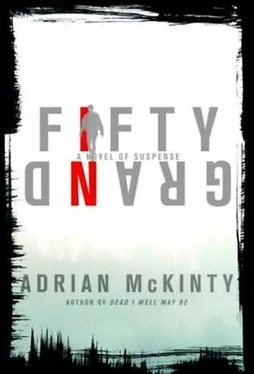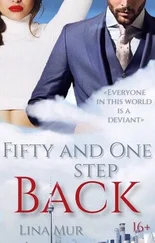“You too, señor, ” I said.
I finished cleaning and when I went downstairs Paul was in the hall impatiently waiting for Jack. The man from last night. Paul Youkilis. Again Ricky’s file: 39, born in Austin, Texas, Ivy League, Jack’s manager and fixer, no known alibi for the night of the accident, hence suspect #1 or #2.
He was wearing a bright red shirt, yellow tinted glasses, black shorts, and flip-flops. He seemed dressed for a beach in Havana rather than a mountain town in Colorado. For some reason this sartorial choice filled me with annoyance.
“And who are you?” he asked, like Jack, failing to remember as far back as ten hours ago.
“María, I’m new. I work for Esteban.”
“New. I don’t like new,” Paul said.
Jack appeared, also in shorts and carrying a racket of some kind.
“All set?” Jack said.
Paul sighed. “I hate fucking squash. When are we going to get to go skiing? Isn’t this supposed to be Colorado? Where’s the fucking snow?”
Jack laughed. “Skiing? Skiing, you say? Nobody under forty goes skiing anymore, you old man.” He turned to me. “Ever been snowboarding, María? It’s the bomb.”
“No, señor .”
Jack punched Youkilis on the shoulder. “Anyway, it’s your fuckup, dude. Cruise makes his own snow. Get us invited to his house and we can ski all fucking day.”
“I’m trying man, I’m trying,” Paul said.
“Try harder. David Beckham’s coming for the weekend and he’s like huge all over Europe and Asia. I was just telling María here what big buddies me and Mr. Cruise are. Don’t show me up, brother.”
Paul examined me again. “When did you start working for Esteban?”
“Yesterday,” I said.
“Yesterday?” Paul muttered.
“Yeah, didn’t you read today’s paper, Paul? Looks like our old buddy Esteban is going to have a lot of new people on his staff,” Jack said.
“What are you talking about?” Paul asked.
“ Fairview Post . María here very cleverly escaped the net,” Jack said, winking at me.
“I have no idea what you’re blathering about,” Paul muttered.
“As per fucking usual,” Jack muttered. He waved, blew kisses at Angela and me, and led Paul outside.
When they were gone, Angela called me over. “María, can you keep a secret?” she asked.
“Let me guess, you’re in love with Señor Jack,” I replied.
“With Señor Tyrone? No. A thousand times no, he’s skinny and has all those mirrors. Didn’t you see that he has pictures of himself on his bedroom wall? He’s crazy.”
“Ok, what’s the secret?”
“I wanted to tell you before, but I wanted to see if I could trust you.”
And because I did such a good job vacuuming carpets you reckon you can? I thought but didn’t say.
“What is it?” I whispered.
“When we get back to the motel tonight, we’re clearing out of here for Los Angeles. Victor has bought a Volkswagen bus and we’re driving to L.A. We’ve had enough of Esteban cheating us, paying us nothing, and now with the federales breathing down our necks, it’s time to go. We can get good jobs in L.A. Better jobs. And we won’t have to work for that fat thief.”
Ahh, so that’s what all the furtive looks were about.
“Who’s going?” I asked.
“Myself, Anna, Luisa, Victor, Josefina. We can take you if you want to come,” Angela said.
“To L.A.?”
“ Sí , we can just disappear. Victor has cousins out there. He can get us Social Security cards, driver’s licenses, good jobs. And no Esteban.”
“I’ll think about it,” I said.
“There’s no need. You haven’t even seen winter here yet. In January and February we have to walk up this hill in the snow and ice. L.A. doesn’t have snow.”
“I’ll think about it,” I reiterated.
“No, no, no, we need a decision now.”
“Then it’s a no.”
She stared at me and shook her head. “Let me call Luisa and tell her you’re coming. You won’t be sorry.”
“No. Don’t. Look, Angela, I don’t want to move so soon. We only just got here and I have a lot of things to do,” I said.
The words were out before I could call them back.
“What things?” she asked.
I knew I had to change tack immediately.
“Nothing. Forget it. Look, the person you should ask is Francisco. He’ll go with you, especially if you tell him that he’ll make more money.”
“You and Francisco are not together?”
“Of course not.”
“Then I will ask him.”
“Do that.”
Angela’s lips narrowed and she went back to the trash bags and I picked up the cleaning spray. Through the living room window I watched Jack and Paul reverse out of the driveway.
Things to do, I thought.
Things to do.
When I was thirteen I won a poetry competition-the Dr. Ernesto Guevara Young Poets’ Prize. The competition was open to all children under the age of sixteen, though really it was open only to the children of Party members. The prize was a trip to St. Petersburg to study composition at the Pushkin School. My poem wasn’t very good, it was about the harbor lights on Havana Bay watching themselves on a still January night. I imagined all the events the harbor had seen over the last five hundred years and wrote about them. The metaphors were weak, the images childish, and the good bits were echoes from José Martí and García Lorca. It was a bad poem but my father knew how to play the game. He changed my title from “Night Harbor” to “Time Can Be Either Particle or Wave” and threw in a line about quantum physics. It was the early 1990s. Things were changing in Cuba. We were ending our ties with Russia, America had a new president, and for a brief while all things seemed possible. It wasn’t quite our Prague Spring but it was something. The judges read my poem and lapped it up. I won the prize and at a big ceremony in the Teatro Karl Marx I got a medal from Vilma Espín-Mrs. Raúl Castro.
Of course they never flew me to St. Petersburg. The trip kept getting pushed back and pushed back and finally, after Dad defected, it was quietly forgotten about. I didn’t write any more poems after that. But the point of this story isn’t my aborted poetry career, or the evils of the Party, or my father’s cunning-no, the point is the change of title. “Night Harbor” would never have won anything, but “Time Can Be Either Particle or Wave” sounded very hip back then. As Dad said, you’ve got to give people what they want, not what they need. You have to change yourself to fit the circumstances. When you’re an undercover detective you have to own every room you’re in.
Like a lot of actors I began with the clothes. I had bought an outfit in Mexico City, an expensive-looking dark gray suit: pencil-thin skirt, light, well-cut jacket, white blouse, black stockings, black high-heeled patent leather shoes, black fake Gucci clutch purse. I’d had to spot clean the jacket since it had been tossed from my bag and had lain on the desert floor while I killed two men.
I had the suit, I had the lie, I had a card.
My voice wasn’t my voice. My face wasn’t my face. Red lips, dark eyes, and that unpleasant local look-a thick layer of orange bronzer that made the skeletal Fairview women resemble victims of some nuclear disaster.
There wasn’t much I could do with my hair but I had gelled it for more bulk and I sat with the poise of an American businesswoman, cross-legged, relaxed, coolly regarding the glossy magazines in the waiting room.
Marilyn, the blond, good-looking, fortysomething secretary, finally announced me: “Miss Martinez from Great Northern Insurance,” she said.
Читать дальше










